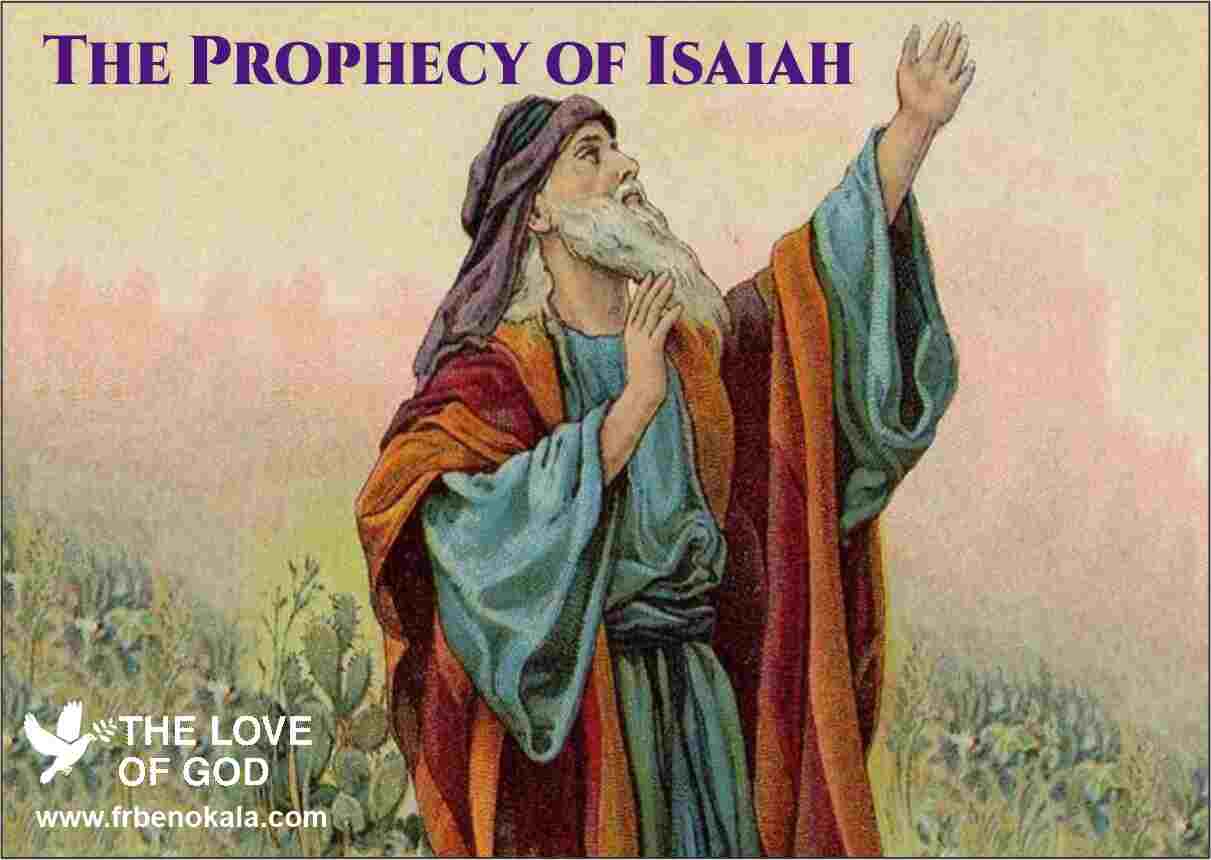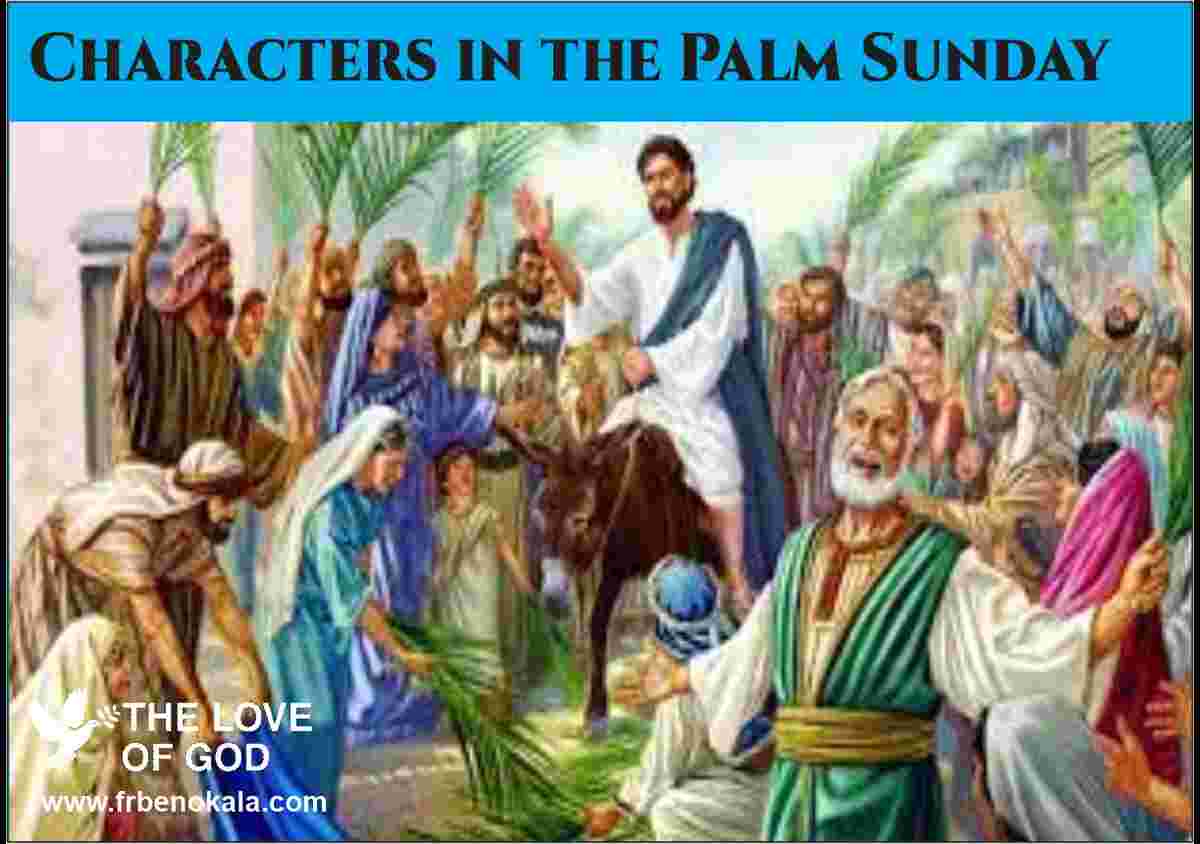Homily of Palm Sunday, Year B
1st Reading (Isaiah 50:4–7); 2nd Reading (Philippians 2:6–11); Gospel (Mark 14:1–15:47)
As the sun rises on this solemn yet celebratory day, the Catholic Church globally commemorates “Palm Sunday” or “the Lord’s Passion.” Palm Sunday is a day which the Church enters upon the mystery of the death, and resurrection of Jesus Christ. This day marks a pivotal moment of the triumphal entry of Jesus Christ into Jerusalem as the Universal King. It is also the beginning of Holy Week, which commemorates the final week of Jesus Christ’s life on earth.
The term “Holy Week” is derived from the Church’s observance of the Paschal or Easter Triduum. This includes: Holy Thursday, Good Friday, and Holy Saturday, culminating in the joyous celebration of Easter Sunday. This week is a confirmation of Christ’s victory over sin and death. Join me as we reflect on the significance of Palm Sunday. A poignant period for contemplating the passion of Jesus Christ.
The Significance of Palm Sunday
Palm Sunday is a significant day in the Christian faith. On this day, Jesus entered Jerusalem and was greeted by crowds waving palm branches and proclaiming “Hosanna”. This is a sign of honor and praise, fulfilling the prophecy of the Messiah’s arrival in the Old Testament.
For Christians, Palm Sunday symbolizes the fulfillment of God’s promise of salvation. It sets the stage for the events leading to Jesus Christ’s crucifixion and resurrection, a pivotal moment in the Christian faith. It also serves as a reminder of the humility and sacrificial love demonstrated by Jesus Christ, who willingly accepted His journey to the cross for the redemption of humanity.
The Prophecy of Isaiah in the Palm Sunday Narrative

The first reading for Palm Sunday offers a prophetic insight into the obedience and resilience of the Servant of God. In this profound passage, the Prophet Isaiah meticulously unveils the destined path and imminent tribulations of the Messiah, Jesus Christ. Isaiah proclaims with conviction, “For the Lord God helps me; therefore, I have not been confounded. I have set my face like a flint, and I know that I shall not be put to shame” (Isaiah 50:5-7).
This prophetic declaration of Isaiah embodies the unwavering courage and divine empowerment that God’s servant, and by extension, to God’s followers, will possess to confront and triumph over any challenge by the grace of God. Similarly, the prophetic vision also extends an invitation to all who dedicate themselves to the divine work of salvation. Hence, we are called to ponder the depth of Christ’s commitment to His mission, despite the suffering He knew He would endure.
Palm Sunday and the Mission of Jesus Christ

In today’s gospel, Jesus exemplifies true servanthood and sacrifice for the sake of humanity (John 11:8–10). His mission in this event is to demonstrate true servanthood through humility, obedience, compassion, and ultimate sacrifice for humanity’s redemption. The narrative vividly portrays Christ’s passion, from the anointing at Bethany to the Last Supper, Gethsemane’s agony, and His crucifixion. As we reflect on these events, we grasp the depth of His sacrifice.
Negative Character Traits in Our Contemporary Society
In our contemporary society, it is clear that human character traits often reflect those of ancient times. Greed, materialism, betrayal, sycophancy, denial, and crowd-pleasing behavior continue to persist, underscoring the timeless struggle of humanity. Moreover, some individuals may act not out of moral conviction but due to societal pressure. In light of this, how can Christians make a positive impact in a world dominated by unscrupulous behavior?
The Irony of Human Characters: A Reflection on the Palm Sunday Narrative

Jesus’ triumphant entry into Jerusalem paradoxically contrasts sharply with His passion. The same people who hailed Jesus Christ as the Messiah with “Hosanna” turned around and demanded His crucifixion. Such irony is common among people in our contemporary society. For instance, many people will applaud you as long as they gain something from you. Once what you do does not benefit them personally, they will turn against you. Also, if they see a talented person who upholds justice, equity, fairness, and honesty, they might begin to perceive that person as a threat.
Regrettably, even in our churches today, there are prevalent instances of cabals and cliques. These categories of people may exert influence and create challenges for individuals who do not align with them. Despite displaying honesty and excellence, individuals outside these cliques may be seen as enemies. The reason is that the integrity of these honest people may shed light on the shortcomings of those cliques. Furthermore, speaking out against injustices within these groups can lead to social repercussions, potentially resulting in ostracism or character assassination.
Characters in the Palm Sunday Narrative

In today’s Palm Sunday readings, we see a diverse array of characters, each with their own complexities and motivations. From the conflicted Judas Iscariot and the impulsive Peter to the calculating Pharisees and the enigmatic Jesus Christ, the narrative is rich with personalities. These characters can be categorized into six major archetypes: sycophants, betrayers, deniers, the avaricious, the sociophobe, and the merciful. Let us take a closer look at each of these personas and consider where we might find ourselves in this intricate fabric of human nature.
The Sycophants in the Palm Sunday Narrative
Sycophants are individuals who flatter others excessively for personal gain or advantage, often at the expense of honesty. Here, they lauded Jesus as King in His presence only to conspire with the Jews to bring about His demise. Really, this calls for a deeper reflection of our own conduct. Have we, at any point, presented ourselves as paragons of virtue to others, but orchestrating their downfall in their absence? Do we find ourselves professing love for individuals while cunningly harboring feelings of resentment and disdain beneath the surface?
These questions prompt deep introspection, urging us to scrutinize the authenticity of our interactions and the sincerity of our emotions. Our outward expressions ought to align harmoniously with the truth of our intentions. This helps to foster genuine connections and cultivating relationships built on honesty and integrity.
The Betrayers in the Palm Sunday Narrative: Wolves in Sheep’s Clothing
Betrayers are individuals who deceive or violate someone’s trust or allegiance, often by acting dishonestly or disloyally towards them. Have you ever wondered about the betrayers among us? Those who trade the trust and confidence of their friends for financial gain. Have we ever betrayed someone’s trust, spread lies, or leaked confidential information for our own benefit, fame, or privilege? This is a sobering question that demands deep reflection. Hence, we cannot help but wonder how many of us have fallen victim to the allure of betrayal. How many have been the perpetrators. It is a reality that we must confront for the sake of our own integrity and the well-being of others.
Deniers: The Chameleons Among Us
These personalities blend in with their surroundings, concealing their true thoughts and feelings. They pretentiously adapt to different situations. These people stand by their friends only during favorable times, deserting them when they no longer gain from the relationship. Peter denied Jesus Christ three times due to fear of death. But he showed remorse for his actions and repented of them.
Have you been a denier, shifting your loyalty based on personal gain? Do you deny your sinful actions or shift blames to others when you go to confessions? Do you change your personality in the presence of others depending on the situation or occasion? These are sobering questions that demand serious introspection. So, let us examine this uncomfortable truth and strive to be better friends and allies with those around us.
The Avaricious Personalities in the Passion Narrative
The avaricious personalities are people characterized by excessive greed or an insatiable desire for wealth and possessions. Judas Iscariot sold Jesus for thirty pieces of silver out of greed. Yet, how much of that money did he actually spend? None! Do I find myself relentlessly pursuing wealth, even at the expense of others? Does my desire for wealth and power lead me to conflict, grudges, insults, or the creation of enemies? It is all in vain, as any ill-gotten gains will ultimately vanish without bringing true enjoyment.
Sociophobes: The Social Anxiety Individuals
Sociophobes are individuals who experience extreme anxiety or fear in social situations. They constantly fear the judgment of others and tend to prioritize public opinion over their own convictions. The action of Pilate in this Palm Sunday narrative serves as a poignant example of this behavior. Even after seeing that Jesus Christ was innocent and that the chief priests’ motivation for handing Him over was envy and jealousy, Pilate still gave in to the mob’s terror. He chose to act against his conscience in order to please the masses and secure his position of authority.
Do we, like Pilate, allow the fear of societal judgment to dictate our actions and decisions? Are we swayed by the negative expectations of others, even when they contradict our inner convictions? It’s important to confront these questions honestly as we navigate our daily lives. They serve as reminders to break free from the grip of sociophobe and embrace a life guided by personal truth and moral conviction.
The Merciful: Christ-like Personalities
The merciful are individuals who show compassion, forgiveness, and kindness towards others. They are willing to make sacrifices, especially for those in dire need. Just like Jesus Christ, who forgave, prayed for, and sacrificed Himself to save those who betrayed Him, they demonstrate these qualities in their actions. Do I exhibit the same behavior as Jesus Christ? It is a challenging but worthy aspiration to emulate the mercy and forgiveness shown by Jesus Christ.
The Humility of Jesus Christ in this Palm Sunday

In the second reading, we see the profound humility of Jesus Christ as He relinquishes divine status to embrace servanthood and death (Philippians 2:6–8). As we celebrate Palm Sunday, we honor Jesus Christ, the ultimate example of humility and servanthood. His journey from divine glory to the cross is a powerful demonstration of sacrifice and love. Hence, we are reminded of His humility, obedience, and selflessness. This selfless act of love and submission is at the heart of our Palm Sunday reflections. So, let us aspire to emulate His virtues in our lives, seeking purification and holiness through the guidance of the Holy Spirit.
A Call to Emulate Christ’s Character on this Palm Sunday

Contemplating Jesus’s sacrifice and striving to embody His virtues is paramount. His humility, obedience, love, mercy, compassion, and faithfulness serve as a profound example for us to follow. As St. Peter emphasizes, Christ suffered on the cross to provide us with a model of selflessness and righteousness. Through His sacrifice, we are granted the opportunity to cast off sin and pursue holiness (1 Peter 2:21–24). This journey involves seeking purification through regular confession and relying on the Holy Spirit to continue living in a manner that is pleasing to God beyond the Easter season.
Conclusion
As we commemorate Palm Sunday, we are called to reflect on the profound significance of these events in the Christian faith. The triumphant entry of Jesus into Jerusalem, the prophetic insights of Isaiah, and the gospel narratives all converge to remind us of the humility, obedience, and sacrificial love demonstrated by Jesus Christ. His selfless act of love and submission serves as a powerful example for us to emulate in our lives. Therefore, let us aspire to embody Christ’s virtues, by striving for holiness through the help of the Holy Spirit. May His sacrifice serve as a model for our own selflessness and righteousness.
Prayer:
May the Holy Spirit give you the grace to participate in this Palm Sunday with dedication. May this Holy Week bring to fulfilment all your prayer requests, through Jesus Christ our Lord, Amen.
Peace of Christ be with you…
Rev. Fr. Benjamin Okala, C.S.Sp.



